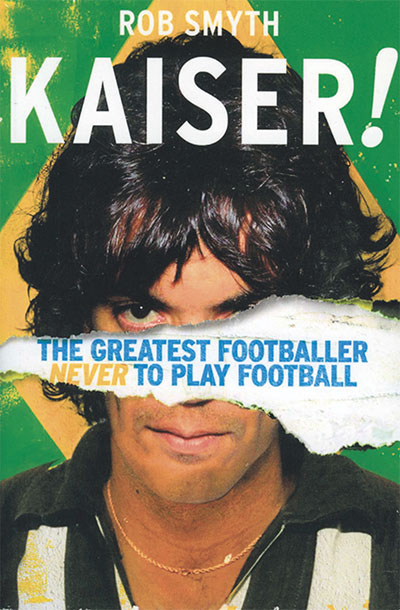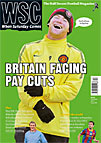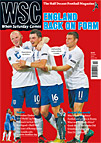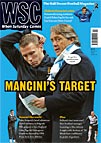
by Rob Smyth
Yellow Jersey Press, £9.99
Reviewed by Paul Rees
From WSC 379, September 2018
Buy the book

by Rob Smyth
Yellow Jersey Press, £9.99
Reviewed by Paul Rees
From WSC 379, September 2018
Buy the book
 Sam Kelly explains a furore at the top of Argentine football, including accusations of a refereeing bias against a top club
Sam Kelly explains a furore at the top of Argentine football, including accusations of a refereeing bias against a top clubWith the furore surrounding the FIFA presidential elections in the week WSC went to press, response to the news was interesting in Argentina: the scandal has hardly had any coverage at all. That is not, however, to say that allegations of corruption have no place in the context of current affairs in Argentine football. They’re just more localised.
 The job description of manager in Argentina is far removed from the role in European football. Joel Richards explains why this is causing problems for some of the South American clubs
The job description of manager in Argentina is far removed from the role in European football. Joel Richards explains why this is causing problems for some of the South American clubs
Carlos Bianchi walked in to rousing applause. Known as “the Viceroy”, the most successful coach in Boca Juniors history was back at the Bombonera and the press room was packed. Yet despite his nine trophies in five years at Boca, Bianchi was not being unveiled as the new coach. In his third spell at the club, he would help out his former team-mate and current coach Carlos Ischia, but from behind the scenes. He would be el manager.
 James Calder recalls a time when the Colombian championship was dominated by well-paid foreign players
James Calder recalls a time when the Colombian championship was dominated by well-paid foreign players
The long-term significance
The beginning of the end of El Dorado, the great Colombian gold rush. Blacklisted by FIFA following its foundation in 1948, the national professional league attracted some of the world’s leading players, lured by high wages funded by the country’s economic boom, massive attendances and a conservative government anxious to divert attention away from widespread and bloody political and social unrest.
Angered by the continuing exodus of its stars, the Argentinian FA complained of “piracy”, leading FIFA to expel Colombia in 1951. The dispute was ended shortly afterwards by the Pacto de Lima, an agreement by which an increasingly cash-strapped league agreed to let its well-paid imports return to their clubs of origin by October 15, 1954, in return for readmission to the international fold. The Colombian free-for-all also had an impact on the English game, the defection of a handful of players resulting in two sizeable increases in the maximum wage, which was eventually abolished in 1961.
 In an effort to control crowd trouble the Argentine authorities have embarked on a unique experiment. Sam Kelly explains
In an effort to control crowd trouble the Argentine authorities have embarked on a unique experiment. Sam Kelly explains
At this summer’s World Cup, police forces in Johannesburg and Polokwane will be more sorely tested than most should Argentine plans to mobilise supporters behind the national team go ahead. In other countries, fan groups find out which tickets they’ve secured and governments sift databases to ensure those with records of violence can’t travel. In Argentina, meanwhile, a non-governmental organisation has been talking to some of the country’s most prominent barra bravas in a bid to eliminate violence from domestic football. Their masterplan? In essence, to help the best-behaved hooligans secure funding to travel to South Africa.